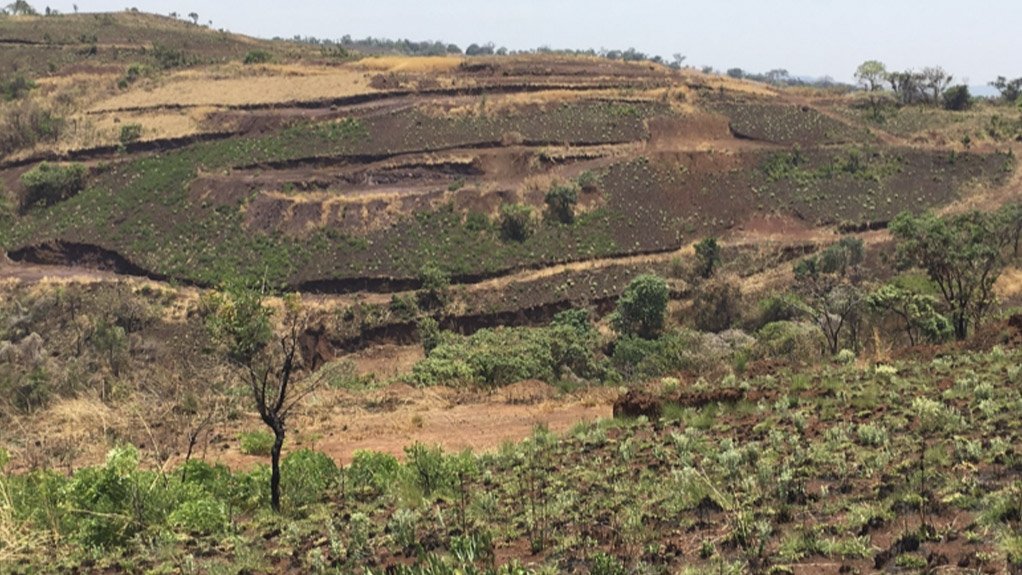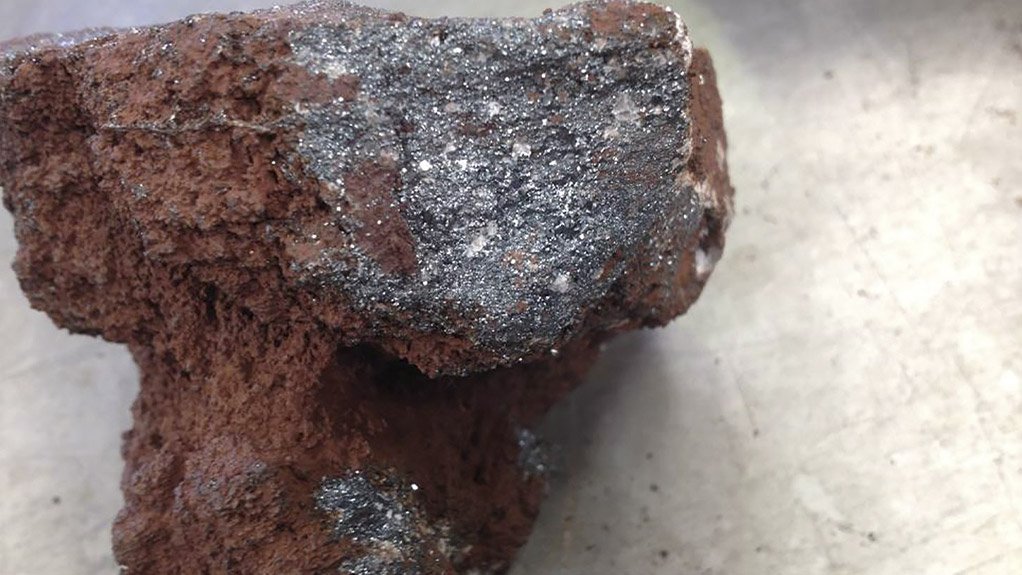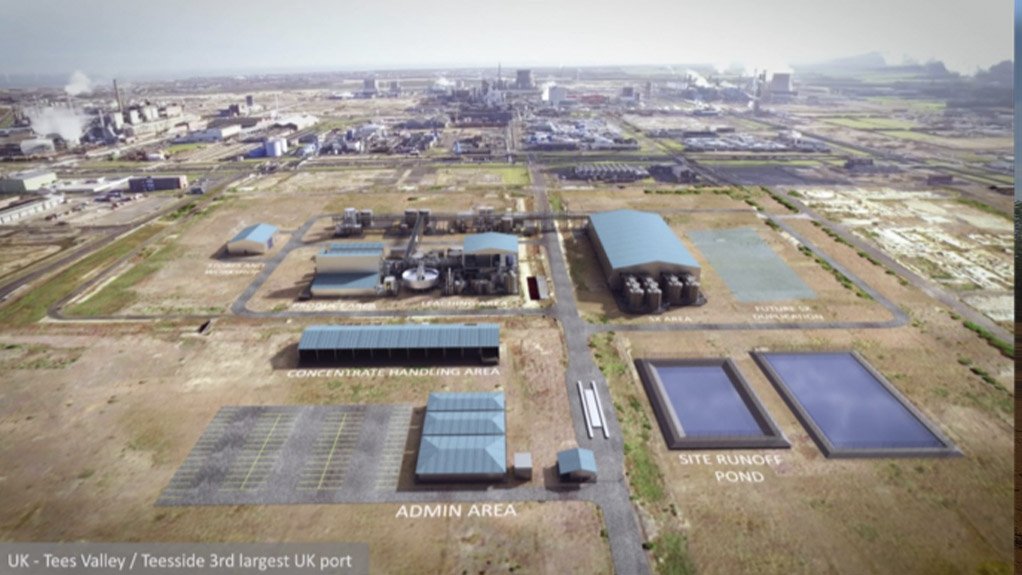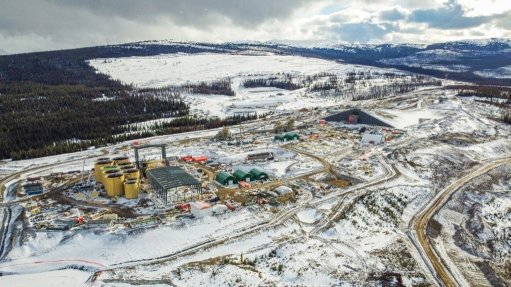Integrated mining, beneficiation approach to optimise production




NGUALLA HILL The Ngualla project is one of the world’s largest and highest-grade rare earth deposits
NGUALLA ROCK SPECIMEN A significant amount of beneficiation will occur in Tanzania
TEESIDE PROJECT LAYOUT The location was selected from 24 possible locations around the world
The parallel development of the Ngualla rare earths project and the Teesside Refinery project positions ASX-listed, Australia-headquartered Peak Resources to become one of the world’s lowest cost integrated rare earths producers, says Peak Resources MD Bardin Davis.
Global decarbonisation initiatives supporting transformations in e-mobility and renewable energy are creating significant mining opportunities for critical minerals such as rare earths and battery materials.
Peak Resources’ integrated approach harnesses the Tanzania-based Ngualla rare earths deposit with “plug-and-play infrastructure solutions”, and the strategic location of the Teesside Refinery in the Tees Valley, in the UK.
The aim of the integrated approach is to optimise margins across the value chain, enhance market position and avoid dependency on Chinese refiners, says Davis.
Some competing development projects intend to produce only intermediate products such as concentrate or a mixed rare-earth carbonate.
“The challenge with this approach is a high dependency on Chinese refining solutions and tolling arrangements, which squeezes margins and results in a contract mining business model,” explains Davis.
The Ngualla project entails the development of one of the world’s largest and highest-grade rare earths deposits, along with the construction of a mine, mill and concentrator, as well as community projects and regional infrastructure.
The Special Mining Licence for the Ngualla project was approved by the Tanzanian Cabinet in July.
The approval allows the project to move towards financing, offtake and development workstreams. Construction on the site is expected to start by the end of September 2022 with production targeted to start in September 2024.
A significant amount of beneficiation will occur in Tanzania, with the ore reserves being upgraded from 4.8% rare-earth oxide (REO) to a concentrate of 45% REO.
The high-grade concentrate will then be shipped to the Teesside Refinery, which will produce neodymium praseodymium oxide and other separated rare earths products.
Teesside Refinery
The refinery’s location was selected after assessing 24 possible locations around the world.
Key criteria in considering location included access to global shipping, as well as cost-effective and reliable bulk reagent supplies, particularly hydrochloric acid.
Additionally, a labour force with chemical processing and refinery experience, corporate and indirect taxes, readily available power and water, as well as environmentally sustainable options to dispose of waste materials, were assessed.
The strategic attraction of Teesside has been further enhanced by the UK government’s freeport announcement and the UK automotive sector’s rapid transition towards e-mobility.
The refinery will be located on a 19 ha site, within the Wilton International Site, located near the town of Middlesbrough, in the Tees Valley.
The Wilton International Site is a large-scale industrial park with existing access to reliable and competitively priced power.
It is located within 3 km of the Teesport deepwater port, which can receive rare earths mineral concentrate and reagents, and is close to several facilities that can manage waste residue from the refining process.
The refinery is also located within the Teesside designated freeport area. Freeports are expected to benefit from lower tariffs and customs charges, simplified customs procedures, streamlined planning processes and tax breaks, in line with recent announcements by the UK government.
It is estimated that the refinery project will cost $160-million and generate about 130 steady-state jobs, based on the bankable feasibility study completed in April 2017.
The study was supported by detailed engineering design and cost studies, as well as fully piloted beneficiation and refining processes.
The project was granted an environmental permit in August 2018 and planning permission was implemented in April 2021.
Peak Resources exercised an option over the site in late May of this year and entered into a 250-year lease. Yearly rent is structured as a nominal peppercorn payment.
Following a final investment decision, construction and commissioning of the Teesside Refinery is expected to take about 18 months.
Tanzanian Impact
The construction of a refinery in Tanzania was not feasible, owing to a combination of infrastructure constraints and a lack of an economically competitive source of reagents.
The mining regime in Tanzania places certain restrictions on the export of raw materials and mineral concentrates, but exports are allowed, subject to beneficiation or value-add taking place in Tanzania and obtaining an export permit from the Mining Commission.
It is expected that Peak Resources will secure an export licence as part of the Ngualla project’s framework agreement with the Tanzanian government.
African mining jurisdictions are, quite rightly, focused on maximising economic benefits and employment opportunities, says Davis.
“There is a delicate balance in trying to capture downstream investment and job opportunities while not making otherwise attractive upstream mining projects no longer feasible.”
With in-country refining, the economics often depend on the size of the project, mineralogy, the availability of infrastructure, competitiveness, the reliability of power, environmental impacts and the potential to source material from multiple upstream projects.
Over the past 25 years, the vast majority of value in the mining sector has been captured by the upstream sector, with the downstream sector generally subject to lower returns, and competitiveness being heavily influenced by energy costs, reports Davis.
Comments
Press Office
Announcements
What's On
Subscribe to improve your user experience...
Option 1 (equivalent of R125 a month):
Receive a weekly copy of Creamer Media's Engineering News & Mining Weekly magazine
(print copy for those in South Africa and e-magazine for those outside of South Africa)
Receive daily email newsletters
Access to full search results
Access archive of magazine back copies
Access to Projects in Progress
Access to ONE Research Report of your choice in PDF format
Option 2 (equivalent of R375 a month):
All benefits from Option 1
PLUS
Access to Creamer Media's Research Channel Africa for ALL Research Reports, in PDF format, on various industrial and mining sectors
including Electricity; Water; Energy Transition; Hydrogen; Roads, Rail and Ports; Coal; Gold; Platinum; Battery Metals; etc.
Already a subscriber?
Forgotten your password?
Receive weekly copy of Creamer Media's Engineering News & Mining Weekly magazine (print copy for those in South Africa and e-magazine for those outside of South Africa)
➕
Recieve daily email newsletters
➕
Access to full search results
➕
Access archive of magazine back copies
➕
Access to Projects in Progress
➕
Access to ONE Research Report of your choice in PDF format
RESEARCH CHANNEL AFRICA
R4500 (equivalent of R375 a month)
SUBSCRIBEAll benefits from Option 1
➕
Access to Creamer Media's Research Channel Africa for ALL Research Reports on various industrial and mining sectors, in PDF format, including on:
Electricity
➕
Water
➕
Energy Transition
➕
Hydrogen
➕
Roads, Rail and Ports
➕
Coal
➕
Gold
➕
Platinum
➕
Battery Metals
➕
etc.
Receive all benefits from Option 1 or Option 2 delivered to numerous people at your company
➕
Multiple User names and Passwords for simultaneous log-ins
➕
Intranet integration access to all in your organisation





















